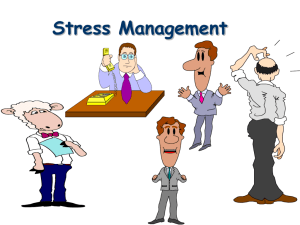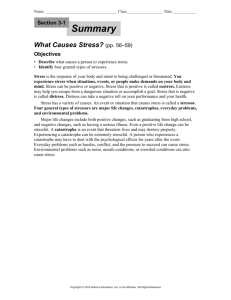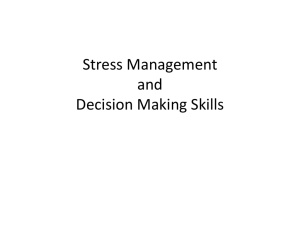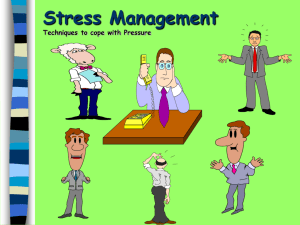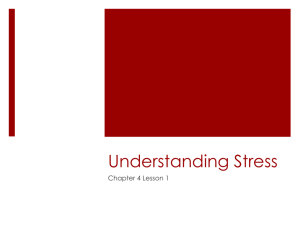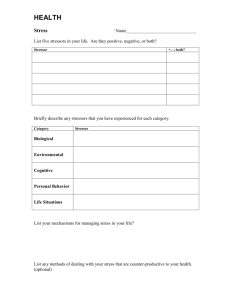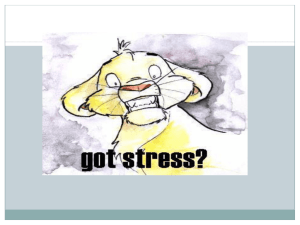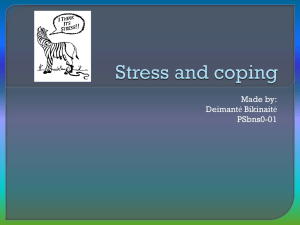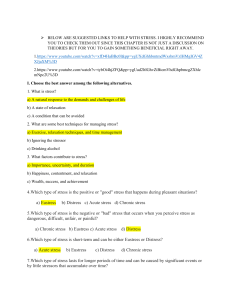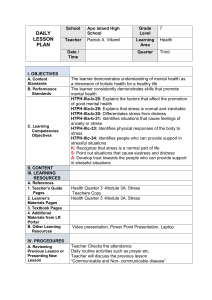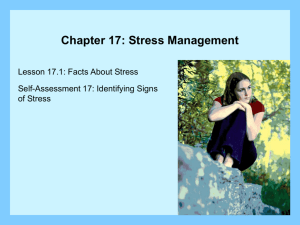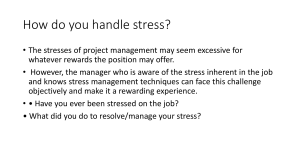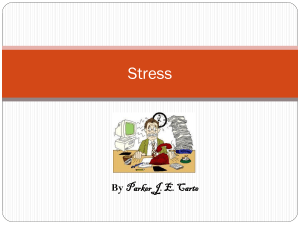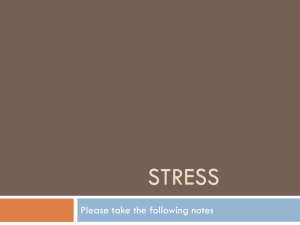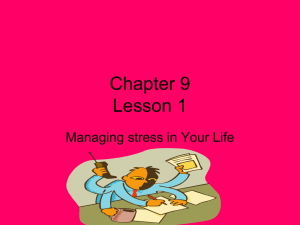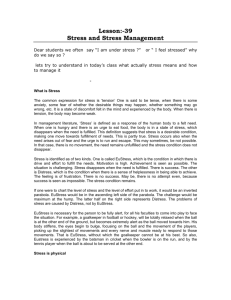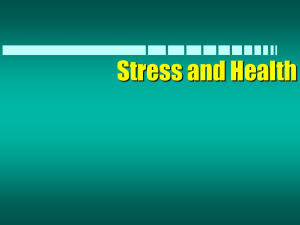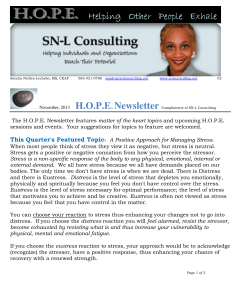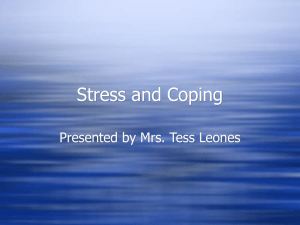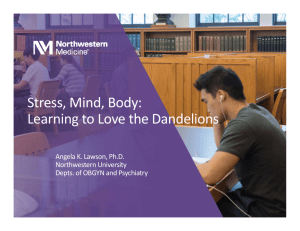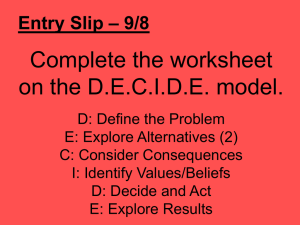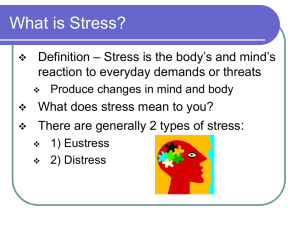HOW TO DEAL WITH STRESS Stress is the body's automatic
advertisement
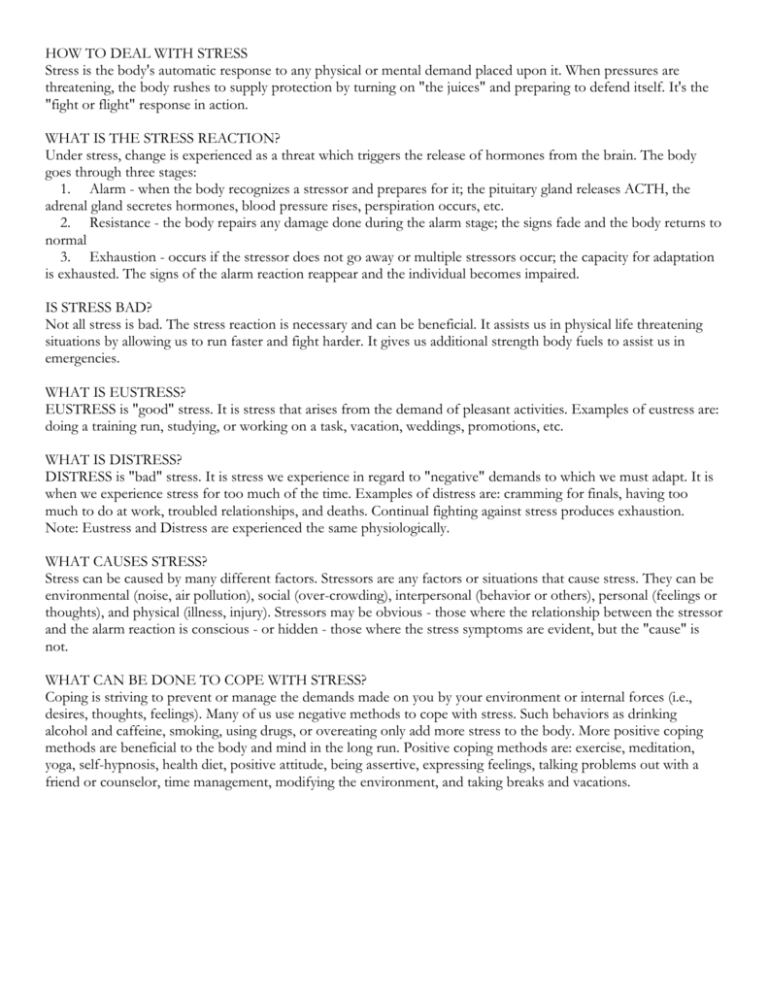
HOW TO DEAL WITH STRESS Stress is the body's automatic response to any physical or mental demand placed upon it. When pressures are threatening, the body rushes to supply protection by turning on "the juices" and preparing to defend itself. It's the "fight or flight" response in action. WHAT IS THE STRESS REACTION? Under stress, change is experienced as a threat which triggers the release of hormones from the brain. The body goes through three stages: 1. Alarm - when the body recognizes a stressor and prepares for it; the pituitary gland releases ACTH, the adrenal gland secretes hormones, blood pressure rises, perspiration occurs, etc. 2. Resistance - the body repairs any damage done during the alarm stage; the signs fade and the body returns to normal 3. Exhaustion - occurs if the stressor does not go away or multiple stressors occur; the capacity for adaptation is exhausted. The signs of the alarm reaction reappear and the individual becomes impaired. IS STRESS BAD? Not all stress is bad. The stress reaction is necessary and can be beneficial. It assists us in physical life threatening situations by allowing us to run faster and fight harder. It gives us additional strength body fuels to assist us in emergencies. WHAT IS EUSTRESS? EUSTRESS is "good" stress. It is stress that arises from the demand of pleasant activities. Examples of eustress are: doing a training run, studying, or working on a task, vacation, weddings, promotions, etc. WHAT IS DISTRESS? DISTRESS is "bad" stress. It is stress we experience in regard to "negative" demands to which we must adapt. It is when we experience stress for too much of the time. Examples of distress are: cramming for finals, having too much to do at work, troubled relationships, and deaths. Continual fighting against stress produces exhaustion. Note: Eustress and Distress are experienced the same physiologically. WHAT CAUSES STRESS? Stress can be caused by many different factors. Stressors are any factors or situations that cause stress. They can be environmental (noise, air pollution), social (over-crowding), interpersonal (behavior or others), personal (feelings or thoughts), and physical (illness, injury). Stressors may be obvious - those where the relationship between the stressor and the alarm reaction is conscious - or hidden - those where the stress symptoms are evident, but the "cause" is not. WHAT CAN BE DONE TO COPE WITH STRESS? Coping is striving to prevent or manage the demands made on you by your environment or internal forces (i.e., desires, thoughts, feelings). Many of us use negative methods to cope with stress. Such behaviors as drinking alcohol and caffeine, smoking, using drugs, or overeating only add more stress to the body. More positive coping methods are beneficial to the body and mind in the long run. Positive coping methods are: exercise, meditation, yoga, self-hypnosis, health diet, positive attitude, being assertive, expressing feelings, talking problems out with a friend or counselor, time management, modifying the environment, and taking breaks and vacations.
